In Science Salon # 108 Michael Shermer speaks with Brian Greene about his book Until the End of Time: Mind, Matter, and Our Search for Meaning in an Evolving Universe. PLUS, during the Coronavirus outbreak, while many schools are closed, Shermer shares one of his Chapman University lectures, taught remotely, free for everyone to view.
Tags
-
browse by topic
meaning
eSkeptic for March 17, 2020
Brian Greene — Until the End of Time: Mind, Matter, and Our Search for Meaning in an Evolving Universe
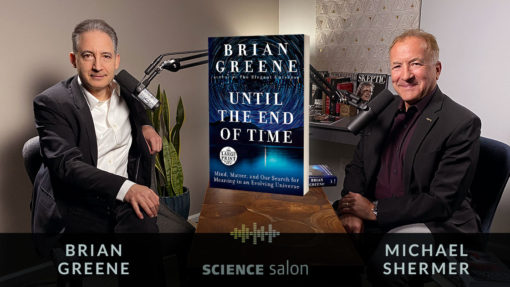
Until the End of Time is Brian Greene’s breathtaking new exploration of the cosmos and our quest to find meaning in the face of this vast expanse. Greene takes us on a journey from the big bang to the end of time, exploring how lasting structures formed, how life and mind emerged, and how we grapple with our existence through narrative, myth, religion, creative expression, science, the quest for truth, and a deep longing for the eternal.
Catherine Wilson — How to Be an Epicurean: The Ancient Art of Living Well
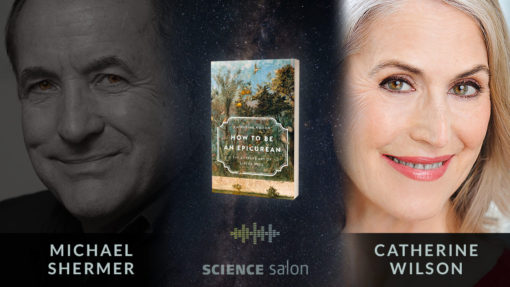
In Science Salon # 96 Michael Shermer speaks with Catherine Wilson about the ancient wisdom of Epicureanism: a philosophy of living well that promoted reason, respect for the natural world, and reverence for our fellow humans.
eSkeptic for December 24, 2019
In Science Salon # 96 Michael Shermer speaks with Catherine Wilson about the ancient wisdom of Epicureanism: a philosophy of living well that promoted reason, respect for the natural world, and reverence for our fellow humans. PLUS, Jonathan Kay tells us what board games teach us about capitalism and how to modify it.
John Martin Fischer — Death, Immortality and Meaning in Life
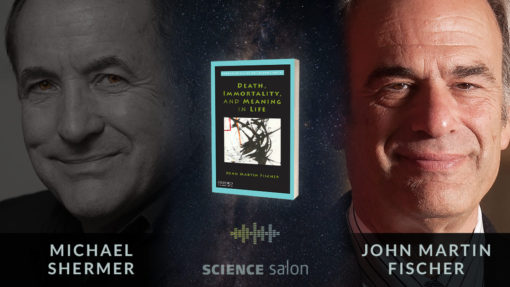
In Science Salon # 95 Michael Shermer speaks with Distinguished Professor of Philosophy John Martin Fischer about his book Death, Immortality, and Meaning in Life — a brief yet in-depth introduction to the key philosophical issues and problems concerning death and immortality.
eSkeptic for December 17, 2019
In Science Salon # 95 Michael Shermer speaks with Distinguished Professor of Philosophy John Martin Fischer about his book Death, Immortality, and Meaning in Life — a brief yet in-depth introduction to the key philosophical issues and problems concerning death and immortality. PLUS: Skeptic Magazine 24.4 is available today. Find out who says the Earth is flat, and why.
eSkeptic for May 29, 2019

In Science Salon # 68, Lucyle T. Werkmeister Professor of Philosophy Dr. Michael Ruse discusses A Darwinian Meaning to Life; PLUS Harriet Hall, M.D. expresses concerns that under the right-to-try law, patients may not fully understand the risks and the low probability of success, and drug companies may take advantage to sell their products to desperate individuals at inflated prices.
Dr. Michael Ruse — A Darwinian Meaning to Life
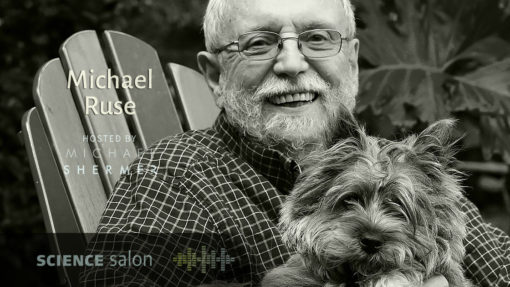
Shermer and Ruse discuss Ruse’s early life growing up as a Quaker in England and how this influenced his thinking about religion • why he is a bulldog against creationism but has a soft spot in his heart for religion • why we should not read religious texts literally, but allegorically • his beef with the New Atheists • how Darwinism is a religion, and more…
eSkeptic for March 20, 2019

What is it about the human mind that so effortlessly translates natural events into messages from another realm — even despite our best attempts to deny that there’s any message in them at all?
Conversations with My Dead Mother: Why We See Signs & Omens in Everyday Events

What is it about the human mind that so effortlessly translates natural events into messages from another realm — even despite our best attempts to deny that there’s any message in them at all?
eSkeptic for November 28, 2018
Psychiatrist Dr. Ralph Lewis answers the following question for religious believers facing adversity: “You’re an atheist?! How do you find meaning and morality in life if there is no God?”
Answering the Hard Question: “You’re an Atheist?! How Do You Find Meaning and Morality in Life if There Is No God?”
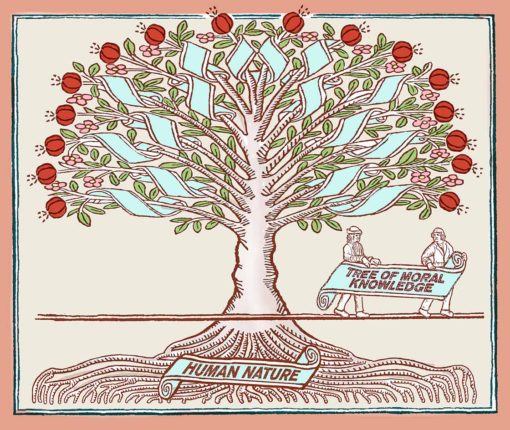
Psychiatrist Dr. Ralph Lewis answers the following question for religious believers facing adversity: “You’re an atheist?! How do you find meaning and morality in life if there is no God?”
eSkeptic for October 17, 2018
Science Salon Podcast # 42: The Meaning of Life, the Universe, and Everything. A dialogue between Michael Shermer and psychologist Clay Routledge (Supernatural: Death, Meaning, and the Power of the Invisible World) on life’s deepest and most meaningful issues.
Dr. Clay Routledge — The Meaning of Life, the Universe, and Everything
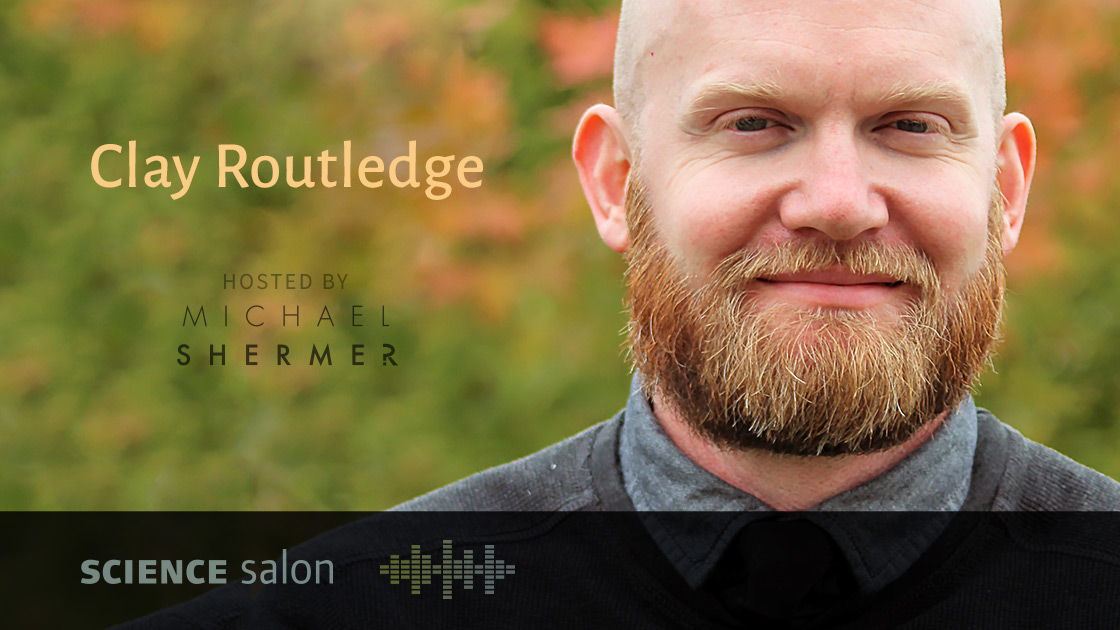
Shermer speaks with psychologist Clay Routledge about: the evolution of motivation and goals in animals and humans • what a “purpose driven life” really means • how atheists and nonbelievers can create meaningful and purposeful lives • the self, personal identity, and existential psychology • why people believe in God and fear death • why religious people live longer and healthier lives • why one-third of atheists believe in some type of life after death • free will as a…
eSkeptic for September 19, 2018
In Science Salon # 38, Michael Shermer and Hebrew University historian and best-selling author (Sapiens, Homo Deus), Dr. Yuval Noah Harari, discuss the central ideas of his new book, 21 Lessons for the 21st Century.
Dr. Yuval Noah Harari — 21 Lessons for the 21st Century
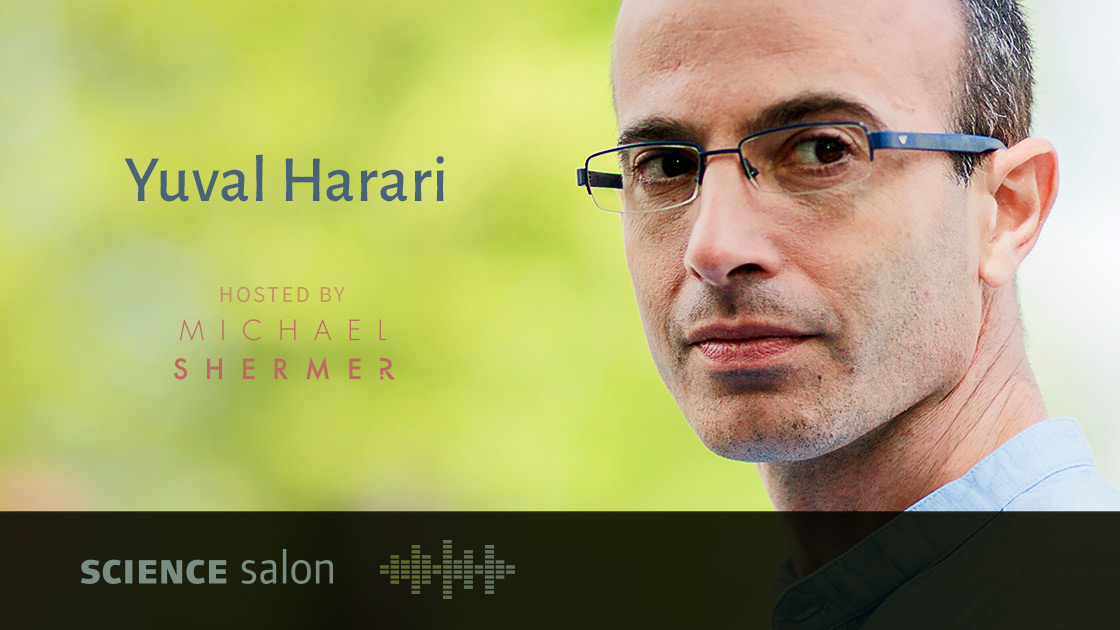
In this dialogue with one of the most interesting minds of our time, the Hebrew University historian and best-selling author (Sapiens, Homo Deus), Dr. Yuval Noah Harari, he and Dr. Shermer discuss: history, work, liberty, equality, community, civilization, nationalism, religion, immigration, terrorism, war, humility, God, secularism, ignorance, justice, post-truth, science fiction, education, meaning, meditation, and more…
Dr. Ralph Lewis — Finding Meaning in a Meaningless Universe
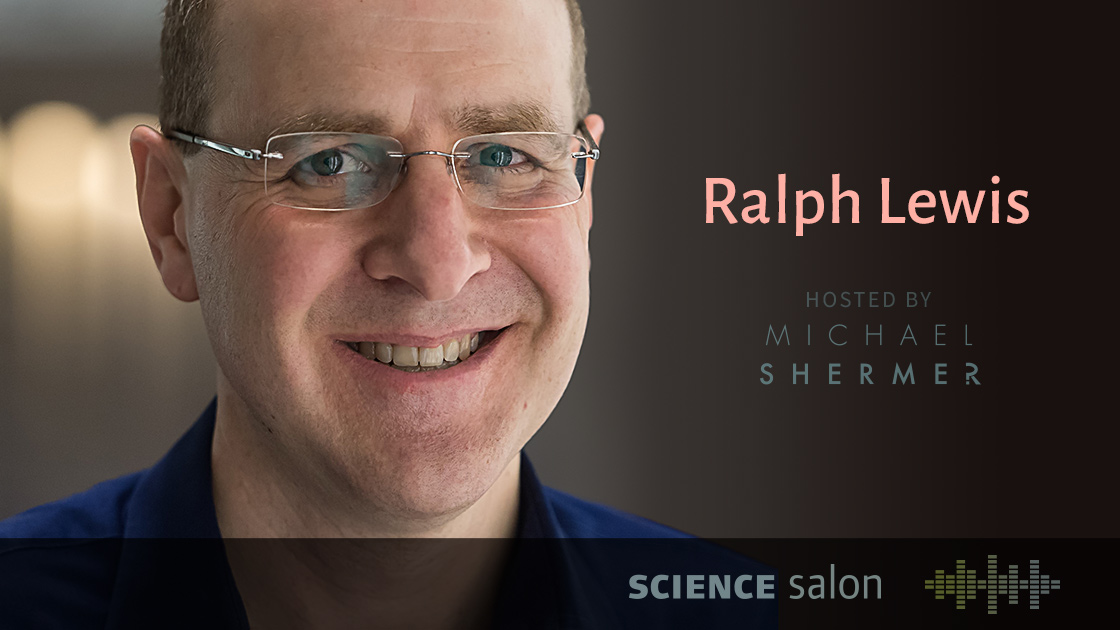
In Science Salon # 30, Michael Shermer talks with University of Toronto psychiatrist Dr. Ralph Lewis, the author of the new book Finding Purpose in a Godless World: Why We Care Even if the Universe Doesn’t about helping cancer patients (and others facing death) to cope without depending on religion.
eSkeptic for May 9, 2018
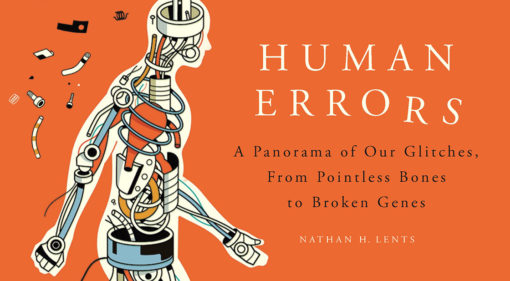
Nathan H. Lent asks five pointed questions of proponents of Intelligent Design that are inevitably raised by examples of poor design in the human body; Michael Shermer is featured in a New York Times article by Bari Weiss on the Intellectual Dark Web, a growing movement that is bypassing the mainstream media to engage in rich intellectual dialogue.
eSkeptic for March 7, 2018
In this week’s eSkeptic: Available Now: Skeptic Magazine 23.1: Evil, Theism, Atheism Scientific American: Factiness: Are we living in a post-truth world? SKEPTIC MAGAZINE 23.1 Evil, Theism, Atheism—meaning & morality in a life without god Order a print subscriptionOrder a digital subscriptionBuy the print back issueBuy the digital back issue Here’s what’s in the latest […]
eSkeptic for February 7, 2018

Do “violent” video games pose “as big a health risk as alcohol and drug abuse” and are they “ruining the youth of America”? In this week’s eSkeptic, Terence Hines reviews Moral Combat: Why the War on Violent Video Games Is Wrong, by Patrick M. Markey and Christopher J. Ferguson.
SKEPTIC App
Whether at home or on the go, the SKEPTIC App is the easiest way to read your favorite articles. Within the app, users can purchase the current issue and back issues. Download the app today and get a 30-day free trial subscription.








